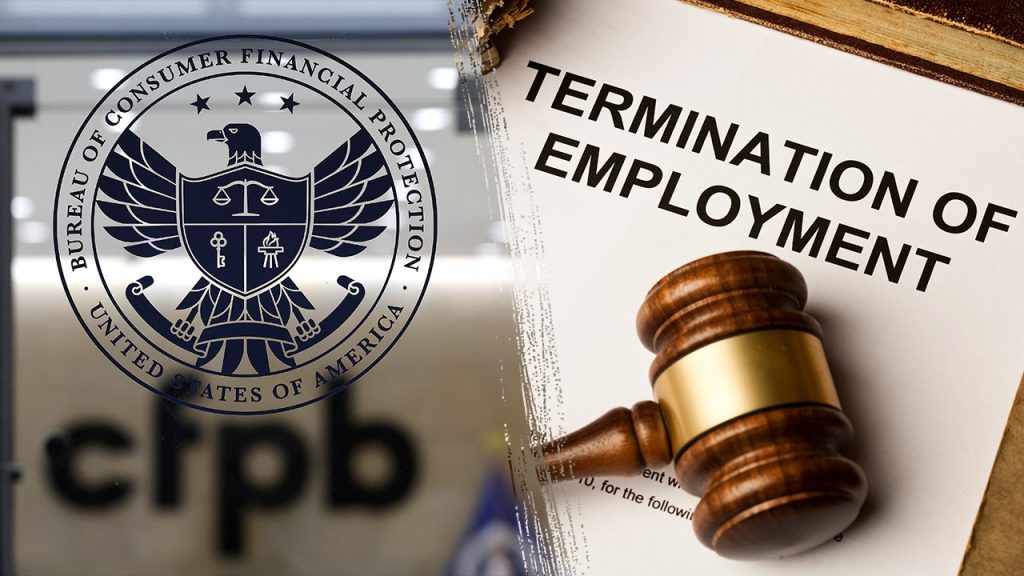A federal judge in Washington, D.C. has issued a temporary order halting the Trump administration’s planned mass layoffs at the Consumer Financial Protection Bureau (CFPB). This ruling comes just as an appeals court narrowed a previous injunction, leading to significant legal and administrative implications for the CFPB and its workforce. The judge’s intervention is aimed at preventing a drastic reduction of the bureau’s staff, which had been set to decrease by approximately 90% amidst ongoing legal disputes from employees and labor groups.
| Article Subheadings |
|---|
| 1) Judge’s Temporary Order and Its Implications |
| 2) Details of the Layoffs and Workforce Impact |
| 3) Legal Background and Lawsuit Origins |
| 4) Responses from Legal Authorities and Administration |
| 5) Future Proceedings and What Lies Ahead |
Judge’s Temporary Order and Its Implications
U.S. District Judge Amy Berman Jackson issued a critical temporary order to block the Trump administration’s mass layoffs planned for the CFPB. This ruling is significant as it directly impacts the job security of approximately 1,400 employees, with the potential to leave only a few hundred remaining in positions at the bureau. Judge Jackson expressed concrete concerns regarding the legality of the layoffs, stating the need to address the situation quickly but emphasizing that no such action should occur until all legal and administrative considerations are duly weighed. Her commitment to a fair resolution points to the judiciary’s role in overseeing executive actions, particularly during a contentious political climate.
Details of the Layoffs and Workforce Impact
As per the latest updates, the proposed layoffs would have drastically sliced the CFPB’s workforce, repositioning the agency’s operational capacity severely. Reports indicate that around 90% of employees would have been laid off, an action described as a reduction in force (RIF) designed to trim down what the administration claims are excessive personnel costs. The timing of these layoffs, set to occur on a Friday evening, would have added to the urgency and chaos of the situation. Judge Jackson’s order not only halts these layoffs but also temporarily prevents the administration from disabling employee access to critical systems and resources, allowing employees to maintain their operational roles meanwhile.
Legal Background and Lawsuit Origins
The chain of events leading to the current situation began when the plaintiffs, comprising the CFPB Employee Association and several labor unions, filed a legal challenge in early February, aimed at stopping the drastic downsizing of the agency. Initial rulings saw Judge Jackson granting a preliminary injunction in March, which highlighted the strong likelihood of success for plaintiffs. This included an order that demanded the government reinstate terminated employees and refrain from any actions that could hinder the workforce’s ability to perform their roles at the bureau. However, following appeals from the Trump administration to modify these orders, a complicated legal battle ensued, culminating in the most recent judicial ruling.
Responses from Legal Authorities and Administration
Legal representatives from the Justice Department sought to contest Judge Jackson’s previous rulings, arguing that the firm injunctions imposed by the court overreached the bounds of judicial authority and unduly interfered with executive prerogatives. They contend that the legal framework guiding federal employment decisions allows for downsizing necessary for the operational effectiveness of the agency. Thus, the administration’s appeal to vacate parts of the injunction aimed at maintaining the necessary flexibility to manage the bureau’s workforce more effectively. This ongoing tug-of-war between judicial oversight and executive power exemplifies the complexities within U.S. labor law regarding government employees.
Future Proceedings and What Lies Ahead
Looking ahead, Judge Jackson has set an upcoming hearing date for April 28, where testimony from officials in charge of the RIF procedures will be presented. The results of this hearing are expected to provide further clarity on whether the proposed layoffs were justified under statutory guidelines. The delay, mandated by the judge’s order, not only preserves the employment of CFPB staff temporarily but also underscores the judicial system’s responsiveness to claims related to unjust reductions in federal employment. All eyes will be on this pivotal hearing to see how it shapes the future of the CFPB’s operations and its workforce dynamics.
| No. | Key Points |
|---|---|
| 1 | U.S. District Judge Amy Berman Jackson temporarily halted layoffs at the CFPB. |
| 2 | The layoffs would have cut approximately 90% of the bureau’s workforce. |
| 3 | Plaintiffs filed a lawsuit to stop the downsizing based on violations of earlier injunctions. |
| 4 | Justice Department lawyers argued that the injunction overreached judicial authority. |
| 5 | A hearing is set for April 28 to determine the adequacy of the RIF actions. |
Summary
The temporary injunction issued by Judge Jackson serves as a pivotal moment in the ongoing battle between judicial authority and executive decisions in the realm of federal employment. The significant implications of the proposed mass layoffs at the CFPB have ignited widespread concern among employees and labor groups, while also raising important legal questions about the bounds of executive power. With upcoming hearings set to clarify the situation, stakeholders on all sides await resolutions that could reshape the operational landscape of the Consumer Financial Protection Bureau.
Frequently Asked Questions
Question: What is the role of the Consumer Financial Protection Bureau?
The Consumer Financial Protection Bureau (CFPB) is a government agency responsible for overseeing consumer protection in the financial sector, ensuring that consumers are treated fairly by financial institutions and providing resources for consumer education.
Question: What does a reduction in force (RIF) entail?
A reduction in force (RIF) involves a systematic process where an employer decreases the number of employees, typically due to budget cuts or operational changes, affecting job security for those potentially impacted.
Question: Why are federal layoffs controversial?
Federal layoffs often evoke controversy as they can significantly disrupt workers’ lives, reduce operational capacity of agencies, and raise concerns regarding the legality and justification behind such executive decisions, particularly related to employee rights and protections.


